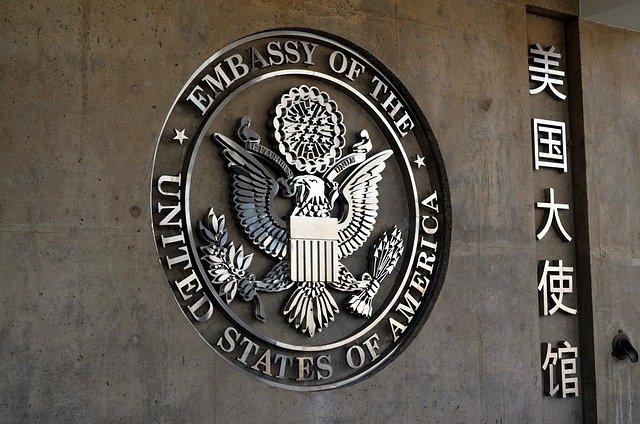
The embassy is the residence, office and position of the ambassador.
The notion of embassy is used to name the position, residence and office of the ambassador (the diplomat who represents a State in a foreign country). The staff of employees that the ambassador is in charge of, including the people in his official entourage, also receive this name.
The embassy is a permanent diplomatic mission , and represents a representation of one country in another, which offers itself as a host. The agreement between both countries is based on different international treaties where international law is recorded, the main points of which affirm that every country has the right to have a representation (embassy) of its land in another, and that said embassy will have a status extraterritorial , subjecting itself to the laws of the country it represents.
In this way, embassies are governed by the legislature of their own State, regardless of where they are located. For example, the French embassy building in Argentina is governed by the laws of France, even though it is located in the city of Buenos Aires . It is worth mentioning that the headquarters of each embassy is located in the capital of each country and is the connection point between one country and another, the diplomatic representation of a foreign government in the host country.
History and current events of embassies
In ancient times, only world powers sent ambassadors to each other. The rest of the countries had extraordinary envoys, plenipotentiary ministers or chargé d'affaires. Those diplomatic missions headed by an officer of secondary rank were called legations .
Today the main diplomatic office is the embassy, although there is also a consulate . Among the main functions of the consul, it is worth highlighting the obligation to protect the national citizens of his country from the justice of the host country, as well as carrying out procedures to obtain any type of documentation that they may need in this land. Powers of attorney and all procedures linked to the international regime are also processed at the embassy.
It is common that, in the event that a conflict begins , a country withdraws its ambassador to demonstrate its disagreement with the host State; However, this decision can be extremely harmful for the citizens of your country, who will be left unprotected and will have to give up (on some occasions) some of their rights, if the legislature of the host State differs greatly from that of their own State. The next step in an escalation of conflict is to sever diplomatic relations and close the embassy.

It can be said that an embassy is a permanent diplomatic mission.
Obligations and responsibilities
The task of the embassy often goes unnoticed; However, it is a fundamental organization so that those citizens who travel abroad enjoy certain guarantees of protection and assistance.
The functions that an embassy must perform are several. Its highest figure, the ambassador, must inform his government about the social, economic, military and political events that take place in the territory where he is working. It must also prepare treaties and state visits , so that the link between both countries leads to a friendly diplomatic relationship. At the same time, by trying to gain good acceptance in the host country, you must seek to promote your own culture and promote political interests of the country in which you reside with the one you represent. But, surely the responsibility in which you must put the greatest care is to ensure that visitors from your homeland to the country where you work receive pleasant treatment and feel supported in case they have to face a specific problem.
To help their citizens, embassies have a mobile phone number to respond to emergencies at any time; In addition, they must provide the necessary documentation so that citizens can move in the country they visit (this includes replacing the documentation in case of theft or loss). At the same time, they must attend to the health needs of citizens : offer addresses of health centers where they can be treated and ensure that they are satisfied with them.
Types of embassy
Depending on the way they are managed, embassies can be:
* Residents : the headquarters are located in the territory of the State to which they are accredited.
* Non-residents: the headquarters is established in another capital, in the case of a type of accreditation signed by several countries; that is, multiple accreditation.
* Mission or Delegation : the group that diplomatically represents the government of its country before an international organization, such as the United Nations.
* High Commission: the headquarters of the embassy of a country that is part of the group known as the Commonwealth in the capital of another country that is a member of that group.
* Nunciature: the headquarters of the Vatican Embassy.
Finally, it is worth mentioning that those citizens of the European Union , in case there is no embassy of their State in a country, can go to the consulate of any other country that is part of the European Union, where they will be represented and taken seriously. their rights.
